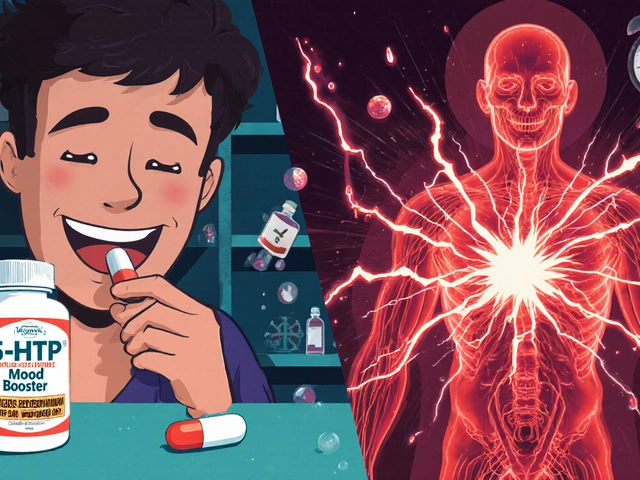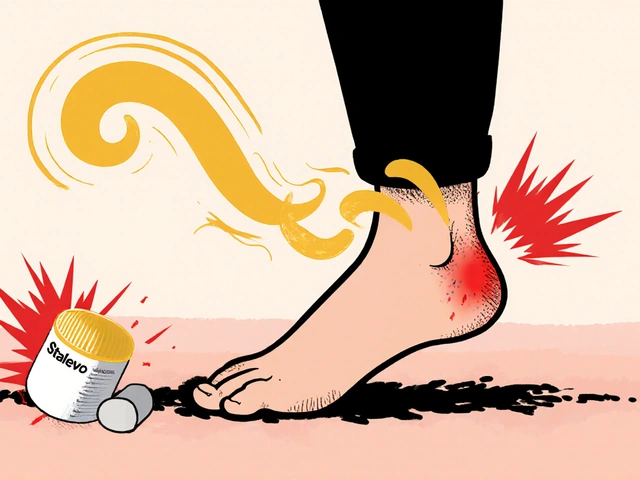Depakote side effects: what you need to know
Depakote (valproate/divalproex) helps with seizures, bipolar disorder, and migraine prevention. It can work well, but it also carries side effects that you should know about. This page lists common reactions, serious warning signs, and simple steps to stay safer while taking it.
Common and mild side effects
You may notice nausea, stomach upset, or feeling sleepy at the start. Other common issues include tremor, mild weight gain, hair thinning, and mild memory or concentration changes. Many people find these settle after a few weeks. Taking Depakote with food can cut down on nausea. If drowsiness is a problem, your doctor may change the dose or the timing.
Some people develop mild blood changes like low platelets, which can cause easy bruising or nosebleeds. That’s why routine blood tests are usually ordered during treatment. If you see unusual bruises or persistent bleeding, tell your doctor right away.
Serious side effects — when to get help
Serious but less common problems include liver damage, pancreatitis, and dangerously low ammonia levels. Warning signs that need immediate care are: yellowing of the skin or eyes, severe belly pain, persistent vomiting, confusion, sudden swelling, and unexplained bleeding. Also seek help if you have new or worsening depression, suicidal thoughts, or sudden changes in mood.
Depakote can harm an unborn baby. It’s linked to birth defects and developmental problems in children exposed during pregnancy. If you’re of childbearing age, talk with your doctor about contraception, pregnancy planning, and safer medication options. Never stop Depakote suddenly—doing so can cause seizures or withdrawal problems. If pregnancy is possible, your doctor should discuss risks and alternatives before you start or as soon as possible.
Other serious but rare issues include severe allergic reactions and muscle breakdown. If you get a fast-spreading rash, fever, or difficulty breathing, call emergency services.
Drug interactions matter. Tell your provider about all medicines, supplements, and OTC drugs you take. Avoid mixing Depakote with large amounts of alcohol, which can worsen liver risk and drowsiness.
What your doctor will likely do: get baseline liver tests, a complete blood count, and sometimes ammonia levels. Expect follow-up blood work at regular intervals. If you have liver disease, are very young, or have other risk factors, your doctor may avoid Depakote or watch you more closely.
Practical tips: take doses as prescribed, keep lab appointments, report new symptoms fast, and don’t stop the drug suddenly. If common side effects bother you, ask about dose changes or switching drugs. For pregnancy concerns, plan ahead with your provider.
If you want help understanding test results, side effects, or safer alternatives, talk to your prescriber or a pharmacist. They can give personalized advice based on your health and other medicines.
Ever wondered what Depakote really does, who needs it, or why doctors pick it for some of the brain’s toughest battles? This article breaks down what Depakote is, how it works for conditions like epilepsy and bipolar disorder, what side effects to watch out for, real data on its effectiveness, and tips for taking it safely. You’ll get a practical look at life on Depakote, sprinkled with relatable advice and solid information. If you or someone you know is facing a Depakote prescription, this is your must-read resource.
View Details

